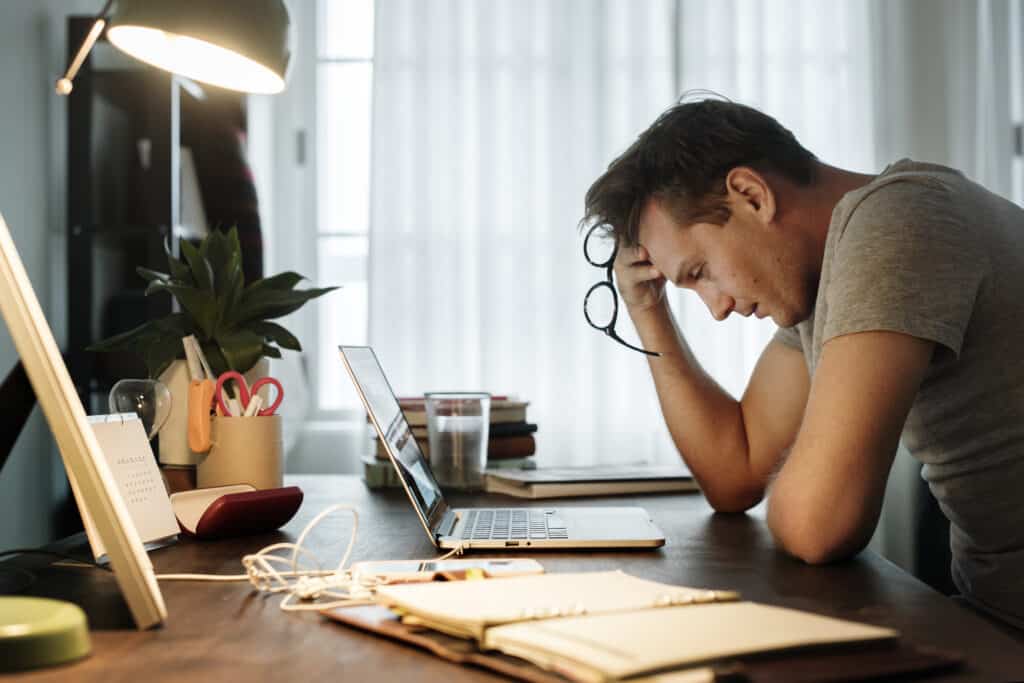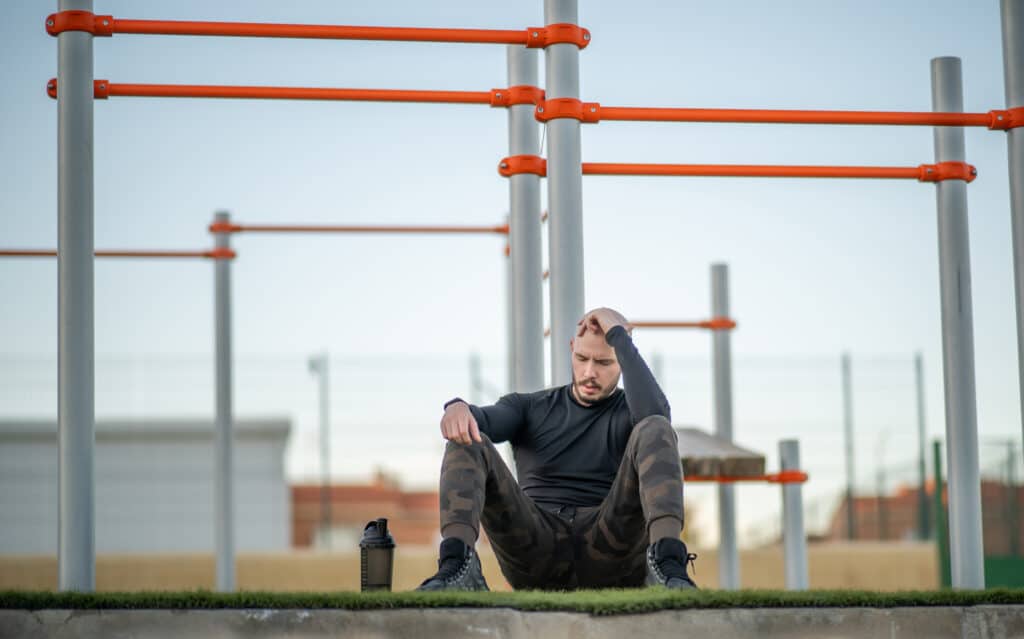The relationship between mental health and physical health is important to explore. Exercise can be an excellent tool for improving mood and mental health, as well as reducing symptoms of mental health disorders such as depression. However, sometimes our mental health can prevent us from doing the very things that would help us feel better. For those struggling with anxiety, going to the gym can be the last thing on our minds. In this article, we’re going to analyze some of the reasons why anxiety and exercise avoidance can be intertwined.
What is Exercise Avoidance?
While many people don’t like the gym, exercise avoidance is more than just skipping a day, or even simply not exercising. Anxiety and avoidance are often tied in a vicious cycle. While avoiding things that make us anxious can feel productive in the short term, it can heighten the level of stress we feel about the event in the long term. This is called the cycle of anxiety, and it has a tendency to spiral out of our control. People with exercise avoidance have a base level of anxiety about exercising, which can be from a number of causes, preventing them from sometimes even thinking about the activity. It can cause levels of stress that feel debilitating, even if the person is not presently exercising.
Doesn’t Exercise Reduce Anxiety?
The unfortunate thing for people whose anxiety is focused on physical exercise is that physiologically, getting active is one of the best ways to reduce symptoms of anxiety. When you exercise, your brain releases neurochemicals like serotonin and endorphins like
endocannabinoids, which are similar to the chemicals released by using marijuana. Talk about a runner’s high! Obviously, exercise isn’t the only way to reduce anxiety. Treatment options such as anti-anxiety medication, or different types of therapy can all be effective for managing anxiety disorders. Moreover, making healthy lifestyle changes such as eating healthy food or getting quality sleep can also help to reduce anxiety levels.
So How Does Anxiety Cause Exercise Avoidance?
Exercise avoidance can stem from a variety of sources. Severe cases of Generalized Anxiety Disorder can feel immobilizing, but let’s look at some specifics that can keep people from getting moving.
Panic Attacks
Many people chase the way that exercise makes them feel. Getting your blood flowing, heart rate up, and breaking a sweat can make you feel powerful, or that your workout was productive. However, your body’s response to exercise is very similar to having a panic attack.
For someone with anxiety, that feeling of having a panic attack can send their worries into a spiral and trigger a real one.

If you’re already prone to panic attacks, avoiding exercise can feel like an easy way to prevent them. An easy way to get back into exercise is to start small and know your exercise limits. By not overworking yourself, you can keep your body from triggering a panic response. Afterward, focus on muscle recovery to mitigate other feelings that can trigger your anxiety.
Gym Anxiety
Sometimes, the anxiety to avoid exercise isn’t focused on the act, but on the place. Gym anxiety is incredibly common and with the cost of home workout equipment, some people feel that no gym means no exercise. Gym anxiety can stem from many sources, from not knowing how to use equipment, to feeling judged or intimidated by other patrons. It’s important to note, that some people don’t like the gym, (and maybe even for those reasons) but can get over their concerns and force themselves to go. People with anxiety can have strong emotions tied to their stress and are unable to “get over it” and go.
Fortunately, there are plenty of ways to work out without going to the gym. Home workouts that require little to no equipment, such as running or yoga, can be great exercises to relieve stress. Alternatively, you can try going for hikes, recreational sports, or even activities such as rock climbing and bouldering. These activities can make the experience more enjoyable as they are often done with friends, and don’t necessarily feel like a workout.
Social Anxiety
Outside of the gym, social activities can be a great way for some people to get exercise in a fun way. Social anxiety can hamper one’s ability to enjoy these activities significantly, closing another door to exercising. Studies have shown that social anxiety and exercise
avoidance are often closely tied, and can prevent people from trying other kinds of exercise. Additionally, social anxiety can prevent people from asking for help on how to use equipment they don’t understand or creating a workout plan.
Social anxiety is a tough issue for many people. There is often no one solution that works for everyone. Talking to a therapist about your mental health can be a great first step, and help you to recognize the stem of your anxiety issues.
Stay Strong Together
Sometimes, your anxiety can feel debilitating, and keep you from doing one of the very things that can lower it the most. Breaking the cycle of anxiety can be hard, but there are many tools to help. The Jefit app, named the best app by PC Magazine, Men’s Health and others can help you reach fitness goals. This is done with a customizable workout planner and training log. In addition, offerings track data, send audio coaching cues, and share workouts with friends.
- Top Hip & Back Extension Exercises for Posterior Chain Power - April 23, 2025
- Best Exercises to Build Strong & Defined Shoulder Muscles - April 21, 2025
- Whey vs. Casein: What’s the Best Protein for Building Muscle - April 18, 2025
